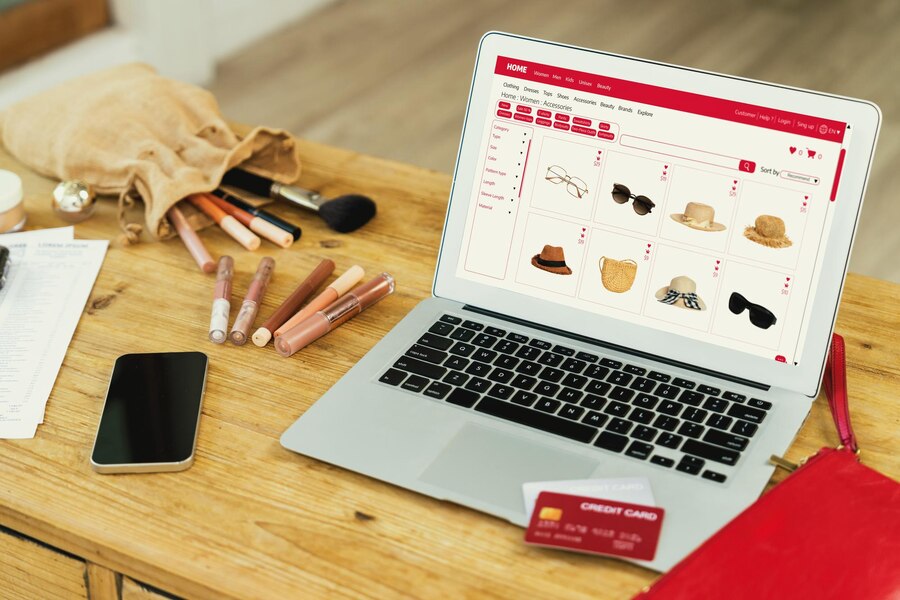Starting an e-commerce journey or considering a platform transition requires essential choices. This guide looks into Shopify and custom websites, breaking down their pros and cons. Whether you’re new to business or a seasoned entrepreneur, the aim is to give you valuable insights for making intelligent decisions.
Decoding Platforms: Shopify And Custom Websites In Focus
Shopify is an easy-to-use e-commerce platform with global reach. On the flip side, custom websites are tailored to specific business needs, giving more control and coding skills for setup and upkeep.
A Detailed Exploration: Shopify vs. Custom Websites
User-Friendliness:
Shopify excels with its e-commerce-centric design, offering an intuitive interface and swift customization options. Custom websites demand technical proficiency involving web development, coding skills, and meticulous management.
Domain And Hosting:
Shopify streamlines the process by eliminating the need for separate domain and hosting decisions. On the other hand, custom websites require careful consideration for goals, structure, and usability.
Content Management:
Shopify serves as a CMS, facilitating easy content editing and reorganization. Custom websites rely on CMS platforms like WordPress but need a more intuitive nature of Shopify’s interface.
Website Construction Effort and Time:
Shopify allows rapid online store setup in just one day with guided instructions. Building a website from scratch is time-consuming and depends on factors such as size, complexity, and technical skills.
Pricing:
Shopify offers plans with additional costs for apps, themes, and domain subscriptions. Custom websites involve costs for hosting, domain, SSL certificate, development, extensions, and payment processors.
Design And Customization:
Shopify provides over 100 customizable templates and a user-friendly drag-and-drop builder. Custom websites offer complete control over design and functionality.
Maintenance And Updates:
Shopify integrates seamlessly with over 8,000 third-party applications. Custom websites require a more complex selection, investigation, and maintenance process.
Support:
Shopify ensures 24/7 customer support through various channels. Custom websites rely on the developer or agency, with support quality varying based on skills and responsiveness.
Unveiling Advantages Of Using Shopify
Advantages include a user-friendly interface, easy configuration, comprehensive e-commerce features, and robust support. Let us try to understand the pros of using Shopify for the sake of better understanding.
Easy To Use E-commerce Platforms
This is one of the biggest advantages of using Shopify. Shopify is built mainly for the average people and not the skilled developers. It’s quite simple to add the products and then create discounts. The web design of it is quite friendly. With the help of drag-and-drop editing tools, you can navigate the software for a pleasant experience. The platform itself provides software for hosting.
Supporting Wide Renge Of Busienss
One of the benefits of using the software is supporting a wide range of products like outdoor gear, home goods, beauty supplies, clothing, and digital products. A study tells the fact that household storage containers, bike saddles, kitchen towels, and toy kitchens are considered the highest-trending. Therefore, if your business involves one of these categories, you can bank on Shopify.
Low Startup Costs
Shopify’s relatively low monthly fees make the entire setup affordable. Shopify has a 14-day free trial period. Hereafter the users have to pay a monthly subscription fee. The basic plan starts at around $29 per month. The following level is $79 per month. Finally, the top package is $229 a month.
Customized Themes
Once you sign up for the account in Shopify, you gain immediate access to around 70 themes that are free of cost. One can easily implement them. It may be easy to get carried away in the design elements. You can spend quite a lot on purchasing the theme from the Shopify store.
Drawbacks involve limitations in customization options, potential content and visual optimization issues, and relatively high transaction fees.
Unveiling Advantages Of Using Custom Websites:
Advantages encompass heightened customization, freedom from platform constraints, extensive third-party integrations, and flexibility in coding and development. Drawbacks include the need for coding expertise, significant budget requirements, time and effort demands, high risk, manual setup, ongoing maintenance, and limited support. However, let us try to understand the advantages of using the customized software here in detail.
Unique Design
One of the advantages of using a custom web design is presenting uniqueness and individuality. This feature is exclusive only to the customized products where you decide with the designer regarding the website. It makes the brand stand out from the crowd.
Custom-Fit
The custom website design cost is less, allowing you to create aesthetic aspects of the template. The design of the product serves. There are unique business needs and expectations. This is why businesses try to design their website to handle their overall personality regarding the product. Due considerations are also provided to the users’ experience, navigation, unique color schemes, and, in the end, the overall personality of the websites.
Seo Optimized
Another benefit of personalized websites is their SEO optimization. The customized website design allows for the website to be designed according to the specific SEO technique. It surely facilitates better ranking on the search engine. The better the ranking, the better opportunity gets created for business development. This is one technical point where the customized versions are well ahead.
Growing Reputation
The growth and development of business depend on reputation building. Brands try to make their best effort to ensure better connectivity. With the help of customized website design, you can establish a relationship, and through better networking, you can create a unique brand for your company.
Ultimately, with the help of a customized reputation, you can grow your ownership and control over your website. Therefore, customized website designs have their gateway to achieving success in the long run. Businesses take the help of these websites to attain a competitive edge.
Strategic Conclusion
Align your choice with unique needs. Whether opting for Shopify or considering a different platform, trust the adept Shopify developers at VT Labs https://www.vtlabs.org/ for safe and precise site building designed to serve your requirements. Their commitment involves leveraging cutting-edge tools to facilitate a smooth digital transformation journey.
Read Also:


























